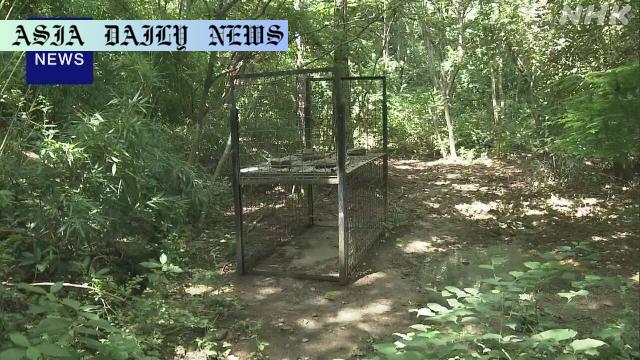Boar Attack: Two elderly hunters found dead in Tokushima Mountains after checking a boar trap.
Police are investigating two elderly hunters found dead in Tokushima Mountains.
The men were experienced hunters checking a boar trap.
Scar injuries suggest a possible boar attack but no boar was found nearby.
The incident highlights safety risks tied to wildlife encounters.

Shock in Tokushima: Two Experienced Hunters Found Dead
The picturesque Tokushima Mountains of western Japan became the backdrop of a tragic discovery when two elderly men were found dead. These men, members of the Tokushima hunting association, were identified as Wakaki Akira and Miyazaki Teruo, both in their 70s. Their deaths have left authorities and locals grappling with the unsettling possibility of a boar attack.
On Thursday evening, local authorities received a report regarding the absence of the two men, who had not returned after venturing out to inspect a boar trap. Following an urgent search in the Shibuno Town region, police discovered their bodies near a cage-style boar trap. Disturbingly, both hunters bore scars on their hands and legs, suggesting a violent encounter. Despite the assumption of a boar attack, no animal was found at the site, complicating efforts to determine the exact cause of their demise.
Investigating the Evidence Surrounding the Fatal Incident
While the visible injuries indicate a potential confrontation with a wild boar, the lack of immediate animal evidence remains a puzzling factor. The Tokushima hunting association affirmed that both men were seasoned hunters familiar with the terrain and the risks involved. This makes the incident even more perplexing, as experienced hunters are typically equipped to manage wildlife encounters.
The scenario underscores the precarious balance between human and wildlife coexistence in rural Japan. Boars, while generally avoiding human contact, can become aggressive if provoked, particularly when caught in traps or cornered. Encounters with boars are not uncommon in Japan, especially in areas where human activity increasingly encroaches on natural habitats.
Examining Broader Implications of the Tragedy
Beyond the immediate loss of life, this incident raises critical questions about the safety protocols employed by hunters and rural citizens dealing with wildlife. While traps are necessary to manage population control and mitigate damage caused by wild animals, ensuring the safety of those tasked with managing them remains paramount.
Furthermore, growing human-wildlife interactions highlight the need for education and precautionary measures. Potential solutions could involve advanced training programs for hunters, emergency support systems, and greater public awareness about handling unexpected dangers in the wild. Rural authorities may need to reassess trap locations and the containment systems being used to strike a better balance between safety and efficacy.
Remembering Two Lives Lost
The tragic deaths of Wakaki Akira and Miyazaki Teruo serve as a stark reminder of the unpredictability surrounding human interactions with wildlife. As their families, friends, and the Tokushima community mourn their loss, it is essential to draw lessons from their experience for the future. Safety, knowledge, and preparedness need to take center stage to prevent similar tragedies in years to come.
Commentary
The Dangerous Human-Wildlife Interaction
The unfortunate deaths of two elderly hunters in the Tokushima Mountains cast a somber light on the complex relationship between humans and wildlife. While such encounters are not new, the incident underlines the risks associated with venturing into untamed environments. This tragedy highlights the need for greater awareness, preparedness, and support for individuals who regularly deal with wildlife in rural areas.
The Risks of Hunting and Wildlife Management
Hunting has long been a crucial part of wildlife population control, especially in regions where increasing animal numbers pose threats to agriculture or public safety. Yet, this situation reminds us that it is also a deeply dangerous activity. Even experienced hunters such as Wakaki Akira and Miyazaki Teruo are not immune to the unpredictability of nature. This raises a pressing need to reevaluate safety measures and potentially implement new strategies to safeguard lives while ensuring effective management of animal populations.
Need for Public Awareness and Advanced Training
The incident should prompt not only the hunting community but also the public to reflect on their approach to coexistence with nature. Modern methods such as remote monitoring, better-designed traps, and increased community vigilance could mitigate risks. Advanced training that equips hunters with strategies to anticipate animal behavior and respond under pressure can also significantly reduce such fatalities.
Final Thoughts
While the loss of these two hunters is deeply tragic, it exposes shortcomings that can serve as a catalyst for improving the safety protocols within this field. Their deaths should not be in vain but rather a pivotal moment encouraging better safety practices for hunters and rural residents alike. Human-wildlife coexistence is not always harmonious, but with thoughtful strategies, tragedies like this can be minimized moving forward.


